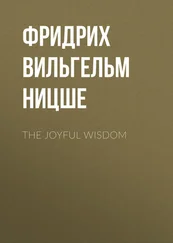463.
ON THE SEVENTH DAY.—“You praise this as my creation? but I have only put aside what was a burden to me! my soul is above the vanity of creators.—You praise this as my resignation? but I have only stripped myself of what had become burdensome! My soul is above the vanity of the resigned ones!”
464.
THE DONOR’S MODESTY.—There is such a want of generosity in always posing as the donor and benefactor, and showing one’s face when doing so! But to give and bestow, and at the same time to conceal one’s name and favour! or not to have a name at all, like nature, in whom this fact is more refreshing to us than anything else—here at last we no more meet with the giver and bestower, no more with a “gracious countenance.”—It is true that you have now forfeited even this comfort, for you have placed a God in this nature—and now everything is once again fettered and oppressed! Well? are we never to have the right of remaining alone with ourselves? are we always to be watched, guarded, surrounded by leading strings and gifts? If there is always some one round about us, the best part of courage and kindness will ever remain impossible of attainment in this world. Are we not tempted to fly to hell before this continual obtrusiveness of heaven, this inevitable supernatural neighbour? Never mind, it was only a dream; let us wake up!
465.
AT A MEETING.—
A. What are you looking at? you have been standing here for a very long time.
B. Always the new and the old over again! the helplessness of a thing urges me on to plunge into it so deeply that I end by penetrating to its deepest depths, and perceive that in reality it is not worth so very much. At the end of all experiences of this kind we meet with a kind of sorrow and stupor. I experience this on a small scale several times a day.
466.
A LOSS OF RENOWN.—What an advantage it is to be able to speak as a stranger to mankind! When they take away our anonymity, and make us famous, the gods deprive us of “half our virtue.”
467.
DOUBLY PATIENT.—“By doing this you will hurt many people.”—I know that, and I also know that I shall have to suffer for it doubly: in the first place out of pity for their suffering, and secondly from the revenge they will take on me. But in spite of this I cannot help doing what I do.
468.
THE KINGDOM OF BEAUTY IS GREATER.—We move about in nature, cunning and cheerful, in order that we may surprise everything in the beauty peculiar to it; we make an effort, whether in sunshine or under a stormy sky, to see a distant part of the coast with its rocks, bays, and olive and pine trees under an aspect in which it achieves its perfection and consummation. Thus also we should walk about among men as their discoverers and explorers, meting out to them good and evil in order that we may unveil the peculiar beauty which is seen with some in the sunshine, in others under thunder–clouds, or with others again only in twilight and under a rainy sky.
Are we then forbidden to enjoy the evil man like some savage landscape which possesses its own bold and daring lines and luminous effects, while this same man, so long as he behaves well, and in conformity with the law, appears to us to be an error of drawing, and a mere caricature which offends us like a defect in nature?—Yes, this is forbidden: for as yet we have only been permitted to seek beauty in anything that is morally good,—and this is sufficient to explain why we have found so little and have been compelled to look for beauty without either flesh or bones!—in the same way as evil men are familiar with innumerable kinds of happiness which the virtuous never dream of, we may also find among them innumerable types of beauty, many of them as yet undiscovered.
469.
THE INHUMANITY OF THE SAGE.—The heavy and grinding progress of the sage, who in the words of the Buddhist song, “Wanders lonely like the rhinoceros,” now and again stands in need of proofs of a conciliatory and softened humanity, and not only proofs of those accelerated steps, those polite and sociable witticisms; not only of humour and a certain self–mockery, but likewise of contradictions and occasional returns to the predominating inconsistencies. In order that he may not resemble the heavy roller that rolls along like fate, the sage who wishes to teach must take advantage of his defects, and utilise them for his own adornment; and when saying “despise me” he will implore permission to be the advocate of a presumptuous truth.
This sage wishes to lead you to the mountains, and he will perhaps endanger your life: therefore as the price of his enjoyment he willingly authorises you to take your revenge either before or afterwards on such a guide. Do you remember what thoughts came into your head when he once led you to a gloomy cavern over a slippery path? Your distrustful heart beat rapidly, and said inwardly, “This guide might surely do something better than crawl about here! he is one of those idle people who are full of curiosity—is it not doing him too much honour to appear to attach any value at all to him by following him?”
470.
MANY AT THE BANQUET.—How happy we are when we are fed like the birds by the hand of some one who throws them their crumbs without examining them too closely, or inquiring into their worthiness! To live like a bird which comes and flies away, and does not carry its name on its beak! I take great pleasure in satisfying my appetite at the banquet of the many.
471.
ANOTHER TYPE OF LOVE FOR ONE’S NEIGHBOUR.—Everything that is agitated, noisy, fitful, and nervous forms a contrast to the great passion which, glowing in the heart of man like a quiet and gloomy flame, and gathering about it all that is flaming and ardent, gives to man the appearance of coldness and indifference, and stamps a certain impassiveness on his features. Such men are occasionally capable of showing their love for their neighbour, but this love is different from that of sociable people who are anxious to please. It is a mild, contemplative, and calm amiability: these people, as it were, look out of the windows of the castle which serves them as a stronghold, and consequently as a prison; for the outlook into the far distance, the open air, and a different world is so pleasant for them!
472.
NOT JUSTIFYING ONESELF.—
A. But why are you not willing to justify yourself?
B. I could do it in this instance, as in dozens of others; but I despise the pleasure which lies in justification, for all that matters little to me, and I would rather bear a stained reputation than give those petty folks the spiteful pleasure of saying, “He takes these things very seriously.” This is not true. Perhaps I ought to have more consideration for myself, and look upon it as a duty to rectify erroneous opinions about myself—I am too indifferent and too indolent regarding myself, and consequently also regarding everything that is brought about through my agency.
473.
WHERE TO BUILD ONE’S HOUSE.—If you feel great and productive in solitude, society will belittle and isolate you, and vice versa . A powerful mildness such as that of a father:—wherever this feeling takes possession of you, there build your house, whether in the midst of the multitude, or on some silent spot. Ubi pater sum, ibi patria. [14] A variation of the well–known proverb, Ubi bene, ibi patria .—TR.
474.
THE ONLY MEANS.—“Dialectic is the only means of reaching the divine essence, and penetrating behind the veil of appearance.” This declaration of Plato in regard to dialectic is as solemn and passionate as that of Schopenhauer in regard to the contrary of dialectic—and both are wrong. For that to which they wish to point out the way to us does not exist.—And so far have not all the great passions of mankind been passions for something non–existent?—and all their ceremonies—ceremonies for something non–existent also?
Читать дальше











